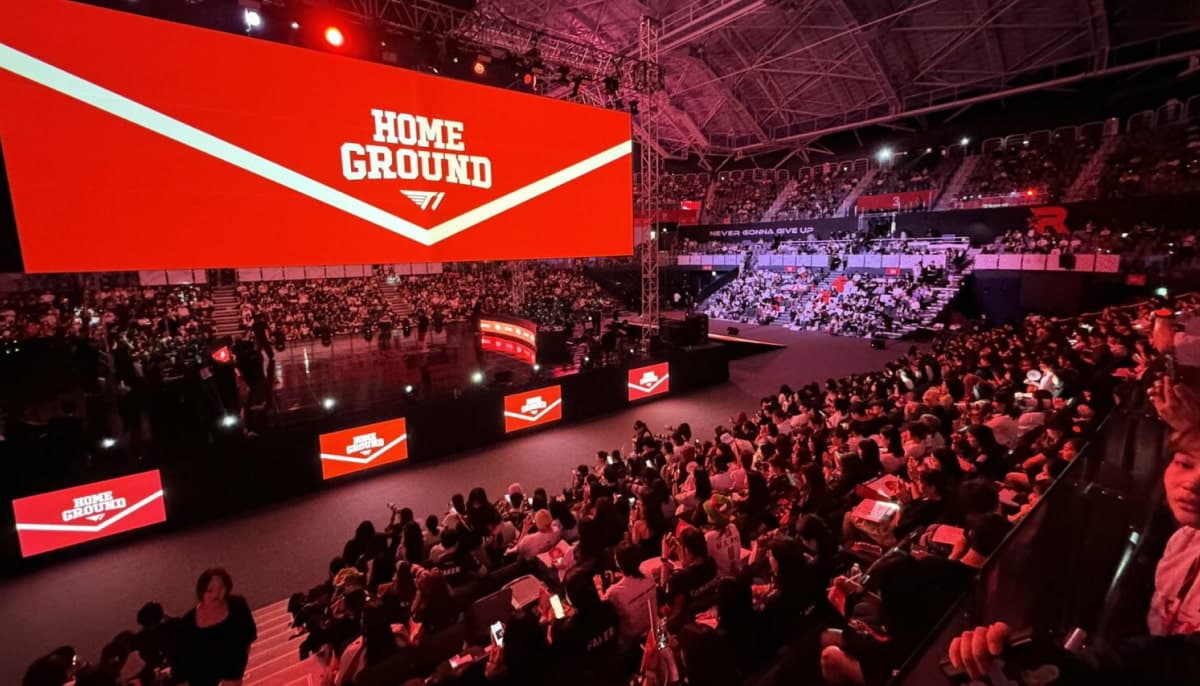
- Dwelling are living events narrate esports nearer to local fans, creating stronger neighborhood connections.
- Groups and leagues can succor from mark sales, increasing sponsorship alternatives, and extra earnings streams to strengthen financial sustainability.
- Examples fancy T1’s Dwelling Ground in Seoul and Movistar KOI’s events in Madrid are sturdy cases to display conceal the feasibility of home are living events.
- Excessive prices, logistical hurdles, neighborhood reliance, and broadcast consistency would possibly maybe maybe well maybe be main boundaries at some stage in all regions.
- The long-interval of time future depends on a hybrid model: home events would possibly maybe maybe well maybe honest nonetheless change into the norm alongside centralised leagues.
Dwelling are living events are one amongst the most modern inclinations in aggressive esports. Unlike aged LAN finals or global tournaments, these events will veritably rob predicament within the internet web hosting team’s home cities or location, giving fans a extra personalized atmosphere that feels uniquely theirs.
With esports increasingly turning into extra structured in most modern years — with extra regional competitions, global tournaments increasing, and fanbases solidifying — the role of home are living events has resurfaced as a monumental unique opportunity for organisations to capitalise on the enhance within the years to intention. Are they share of the map in which forward for esports, or are the most modern successes precise standalone outliers?
This article explores what home are living events are, why extra groups are pushing for them, the boundaries combating their enhance, and whether or no longer they describe a sustainable path forward for esports.
What are home are living events?
Dwelling are living events in esports are matches or sequence hosted by a team of their very have city or dedicated venues. In predicament of internet web hosting all respectable matches in a centralised studio or enviornment, veritably owned by the sport writer, groups play in front of their local fans — equivalent to video games in aged sports.
The main distinction is that home events are no longer world events fancy Worlds or MSI, but league matches anchored in a team’s particular neighborhood.
In League of Legends, China’s LPL used to be the first location to adopt a home venue model, with team-owned arenas at some stage in extra than one cities, in conjunction with Shanghai, Chengdu, and Xi’an. While no longer all groups had their very have enviornment, groups would possibly maybe maybe well maybe exercise the enviornment to explore extra industrial alternatives while constructing stronger communities by having fans motivate matches are living.
The top success when it comes to home are living events, nonetheless, comes from South Korea and the most dominant organisation within the scene, T1.
The T1 Dwelling Ground used to be first offered in June 2024 and introduced again this year. The events saw T1 host and put together all formula of respectable LCK matches that includes their team. Despite being a novel structure, it came with immediate success: over 6,200 attendees in 2024 and 15,000 this year. T1 Dwelling Ground has now change into one amongst the top esports events no longer hosted straight by Insurrection Games.
Europe has been catching up thru the LEC Roadtrips, the attach Karmine Corp and Movistar KOI filled their arenas in Paris and Madrid, respectively. Within the intervening time, the top regions with out a home are living events in LoL are the LTA (Legends of the Americas) and LCP (League Championship Pacific).
Other esports enjoy also tried this model, with mixed success. The Overwatch League launched in 2018 with a home-and-away system, and while it first and most major labored, it used to be almost at present halted by the COVID-19 pandemic. The Call of Responsibility League adopted a the same franchise setup and used to be also affected equally.
Reasons for further
There are several reasons why esports would possibly maybe maybe well maybe honest nonetheless embrace the alternatives of internet web hosting are living home events. Moreover the industrial advantages that can drive up revenues thru mark sales, merchandise, and sponsorships, the internet web hosting team can solidify fan engagement while strengthening rivalries thru on-predicament interactions. This also makes it more straightforward to drive unique storylines, bringing extra folks nearer to esports, and turning correct into a reinforcing cycle to create higher the total fanbase.
From an organisation’s perspective, having withhold a watch on over broadcast, activations, and events outdoors of the esports matches would possibly maybe maybe well maybe be significantly critical for brands having a behold to salvage a stronger affiliation with the communities.
In response to Joe Marsh, CEO of T1 Entertainment and Sports activities, the 2024 version saw the team generate over $1m thru tickets, meals and beverage sales, and merchandising sales, precise from the event by myself. With this year’s version taking predicament at some stage in three days and attendees virtually tripling, the earnings numbers are absolutely going to be higher.
Capacity components
While home are living events would possibly maybe maybe well maybe be monumental successes, they’re no longer guaranteed to work. Within the trendy generation, the attach esports’ schedules are packed and no longer every location has the the same fan density, internet web hosting are living events can change into a first-rate financial burden for esports groups, who’re already navigating thru a worldly macroeconomic panorama.
Renting or striking forward arenas is costly, and veritably the risk outweighs the most likely upside. If we add up logistical challenges and the most likely broadcast inconsistency, which is ready to noticeably hurt the viewing journey, the model turns into unstable to scale previous a pair of flagship organisations. Previous examples fancy the Overwatch League and Call of Responsibility League unique how mercurial prices can spiral if the attendance rate and revenues generated are no longer excessive ample, forcing leagues to retreat to centralised play no topic preliminary enthusiasm.
Conclusion
Dwelling are living events describe one amongst the most fun but unstable alternatives in trendy esports. Huge events can lead to exponential earnings and neighborhood enhance, getting powerful nearer to aged sports culture. Yet they also narrate logistical headaches, uneven accessibility, and steep financial dangers.
Attempting ahead, the most definitely topic is a hybrid means: flagship home events, if confirmed a success, will continue to exist for the most highly effective groups, while centralised studio play remains the spine of competitors. Unless the scale of the esports fanbase grows hand in hand with these ambitions, home are living events risk turning into costly showcases rather then sustainable pillars of league ecosystems. Indirectly, it turns correct into a balancing act between passion and sustainability.
FAQs
It varies by location. The LPL has been running home esports events for years on myth of its four-city venue system, while the LCK and LEC are nonetheless experimenting with a handful of excessive-profile events per season.
There isn’t a formal qualification route of for home esports events. Whether or no longer a match is hosted in a team’s home city veritably is dependent upon the league’s time desk and matchups.
Within the intervening time, T1 Dwelling Ground is the most well-liked home are living esports event, on myth of T1’s map and recognition at some stage within the commerce. In Europe, Karmine Corp and Movistar KOI’s LEC Roadtrips enjoy also reached cult-fancy recognition, drawing hundreds of fans.
The submit Have to esports host extra home are living events? looked first on Esports Insider.





















